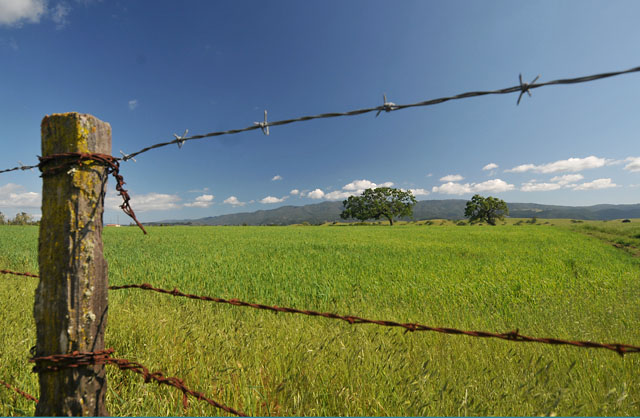County Faults Chumash Camp 4 Report
Activist Group Also Files Lawsuit Against Tribe

Santa Barbara County officials and the Environmental Defense Center (on behalf of the Santa Ynez Valley Alliance) sent separate letters last week to the Bureau of Indian Affairs addressing county and valley resident complaints regarding the bureau’s environmental analysis of the Chumash tribe’s request to take its Camp 4 property into federal trust.
The county called on the bureau to conduct a more thorough review of the plans, finding fault with the analysis’s use of present-day estimates of effects on nearby areas when the tribe is bound to Williamson Act rules of the land through December 2022; the tribe wouldn’t be able to develop the property until at least early 2023, the county’s report stated. Another omission, the county’s letter continued, came in the bureau’s failing to note that the fee-to-trust process — whereby the land would be removed from the county’s tax rolls and made exempt from its planning regulations — isn’t time-tied. In October, the Board of Supervisors scrapped the Chumash’s Camp 4 annexation request, prompting the tribe to take its plans to Congress, where a piece of federal legislation was soon thereafter introduced.
“The county simply refuses to recognize the tribe as a government that is capable of managing its own land-use regulation,” said tribal chair Vincent Armenta, in response to the letters. “As the tribe has done for thousands of years and will continue to do with any project it undertakes, the Camp 4 housing development will both protect and preserve the environment.” The Environmental Defense Center stated otherwise in its letter, noting “flaws” in the assessment related to possible effects on oak trees, wetlands, and animal habitats and chiding the bureau for not examining whether the tribe could accomplish its Camp 4 goal — providing 143 tribal housing units — without taking the fee-to-trust route.
On Monday, a separate activist group, Save the Valley — making good on frustrations it voiced earlier this month — filed a lawsuit against the tribe, alleging that the tribe erred in not formally signing its contract under the Williamson Act. The lawsuit takes issue with the tribe benefiting from the decreased taxes afforded under Williamson while, the suit continues, potentially escaping the rules that could be enforced if the property went into federal trust. Save the Valley has asked that the tribe sign the paper and pay the group’s legal fees. Armenta — who previously said the tribe “fully intends” to sign the contract — called the lawsuit “make-believe drama.”


